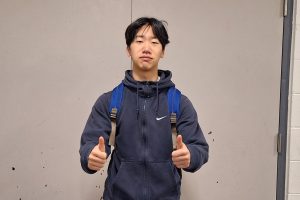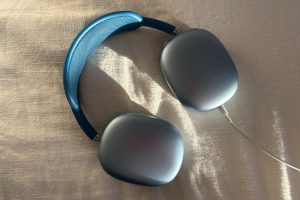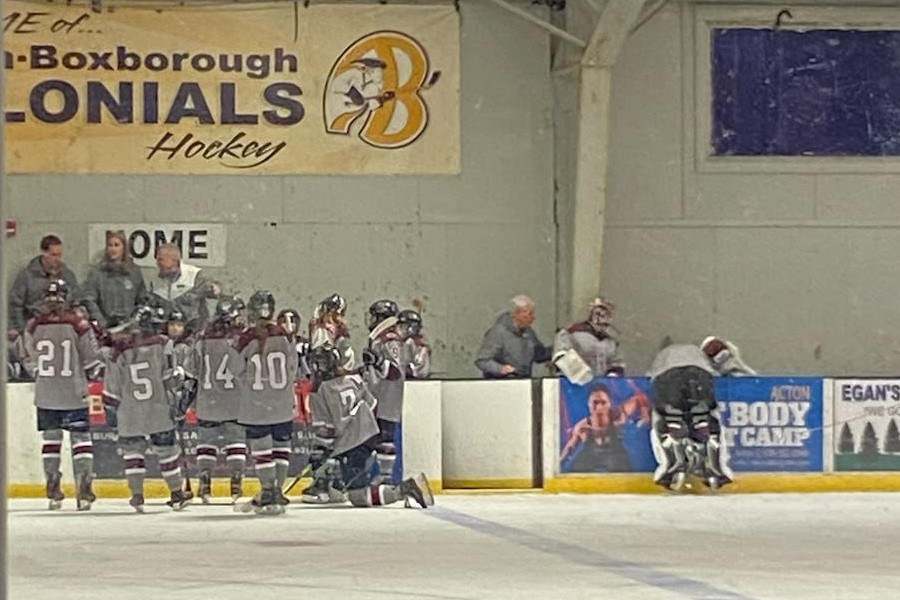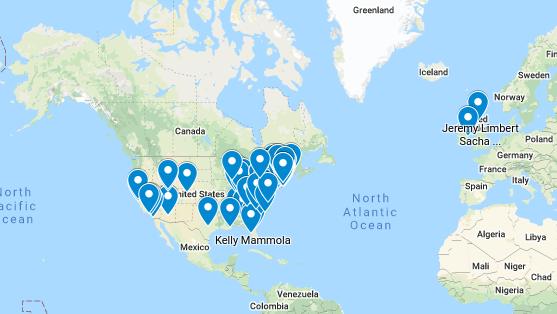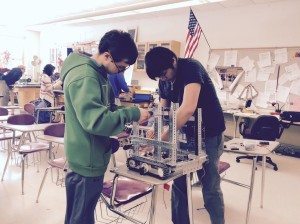
By Kai-Lou Yue
News Editor
New classes are infrequently added to the program of studies at Westford Academy, as shown by previous years when a few new courses in the history department were available for students to take. However, this year, the science department has decided to add classes, revamp the original classes, and is in the process of changing a large part of the physics and engineering curriculum for the 2015-2016 school year.
The process was started a few months ago by Science Curriculum Coordinator Bill Bobrowsky, Principal James Antonelli, and other members of the science department.
New classes such as Robotics I, II, III, and IV were added to the engineering program and are available to be taken as honors or CP level courses. According to Bobrowsky, robotics, which originally only existed as a club, is being added as a class because of the increased interest and participation in the club. Students will have to start with Robotics I, which is a prerequisite for Robotics II, and so on.
Additionally, Women in Engineering, a female-only class, has been added in hopes of encouraging females to feel more comfortable in an engineering class, as most are typically predominantly male.
“Girls aren’t taking engineering classes in very large numbers, and we’d like to see more. One thought was that since the classes are so consistently all boys, girls aren’t comfortable taking the classes. [The class] is not going to be watered down in any way […] It will hopefully get more girls started on the track of engineering,” said physics teacher David Beningson, who originally proposed the class.
Along with the implementation of new courses, all of the engineering courses, including the ones that were previously full year courses, are now only semester courses. Intro to Engineering is the main course affected.
“While [the course] still meets the frameworks for an engineering curriculum for the state, we’ve split it up so that one semester is looking at more construction trades and kind of the mechanical side of engineering, and the other side is electronics and understanding fluid systems like Bernoulli’s principle,” said Bobrowsky.
Besides courses in engineering, a new chemistry course, Beyond AP Chemistry – Advanced Techniques, has been created for students who are interested in a chemistry course above a level they have taken before.
“We were looking for a place even the best of the best students could find something that they enjoyed and would be able to go to the next level. We always lament the idea that AP courses are content-heavy, and even though they’ve changed and they’re much more inquiry based, this new course is almost all about lab technique and understanding what it’s like to do scientific research,” said Bobrowsky.
As the number of classes has increased with the addition of the new courses, the number of the types of classes the teachers in the science department teach will also most likely increase.
According to Bobrowsky, most teachers teach only one or two subjects a semester, such as physics and mechanical engineering at the same time, and multiple blocks of those subjects. However, next year teachers may have to take on another subject so that there are enough teachers to teach the newly added classes.
“I’m excited with a little bit of reserve,” said physics teacher Bill Bowen. “I know it’s going to be a lot of work for me, and a lot of work for those of us that are teaching the [new] classes, because […] usually the first time you teach a class, you learn how not to teach it […] and then the second time you get better. Every year you teach it you get better and better.”
Despite the extra work for teachers to come up with lesson plans for the new classes and reform the curriculums of much of the old, a common consensus is that the addition of new classes is a positive step.
“We really wanted to provide kids with better opportunities to take the things that they wanted to take,” said Bobrowsky.


